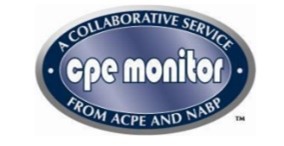Determining the optimal treatment regimen for patients with chronic lymphocytic leukemia (CLL) has been a clinical challenge, especially since most patients are older than 70 years, present with significant coexisting comorbidities, and exhibit one or more common chromosomal alterations. However, outcomes in CLL are improving with the availability of non-chemotherapy options with fewer toxicities. Fixed-duration therapy has emerged as an even more attractive approach for the frontline treatment of CLL and is associated with mild toxicities, improved treatment adherence and monitoring, and reduced financial burden. Embark on a journey through this educational series to achieve a better understanding of the rationale and supporting clinical data for fixed-duration therapy, monitoring strategies, the role of MRD-guided treatment selection, and approaches to overcome relapsed/refractory CLL.
Fixed-Duration: A Patient-Captivating Standard of Care in CLL
Fixed-Duration vs Continuous-Dosing Approaches in CLL: Impact on QoL and Toxicity Risk
Overview
Disclosure of Conflicts of Interest
In accordance with the ACCME Standards for Integrity and Independence, Global Learning Collaborative (GLC) requires that individuals in a position to control the content of an educational activity disclose all relevant financial relationships with any ineligible company. GLC mitigates all conflicts of interest to ensure independence, objectivity, balance, and scientific rigor in all its educational programs.
Faculty:
Talha Munir, PhD
Consultant Hematologist
St. James’s Hospital
Leeds, United KingdomDr. Munir has reported the following relevant financial relationships or relationships with ineligible companies of any amount during the past 24 months:
Consulting Fees: AbbVie, Alexion, AstraZeneca, BeiGene, Janssen, Roche, SobiThomas Kipps, MD, PhD
Distinguished Professor of Medicine
Center for Novel Therapeutics
University of California, Moores Cancer Center
La Jolla, CADr. Kipps has reported the following relevant financial relationships or relationships with ineligible companies of any amount during the past 24 months:
Research: Breast Cancer Research Foundation, California Institute for Regenerative Medicine, Leukemia and Lymphoma Society, Oncternal Therapeutics, Pharmacyclics/AbbVie
Patent Holder: Cirmtuzumab*
Consulting Fees: BeiGene, DAVA Oncology, Janssen, Nexus, Pharmacyclics/AbbVie
*Cirmtuzumab was developed by T.J.K. and licensed by the University of California to Oncternal Therapeutics, Inc., which has provided stock/options to the university and T.J.K.William Wierda, MD, PhD
Professor of Medicine
MD Anderson Cancer Center
Houston, TXDr. Wierda has reported the following relevant financial relationships or relationships with ineligible companies of any amount during the past 24 months:
Contracted Research: AbbVie Inc; Acerta Pharma, a member of the AstraZeneca Group; BeiGene; Bristol Myers Squibb Company; Cyclacel Pharmaceuticals Inc; Genentech, a member of the Roche Group; Gilead Sciences Inc; GlaxoSmithKline; Janssen Biotech Inc; Juno Therapeutics, a Celgene Company; Kite, a Gilead Company; Loxo Oncology Inc, a wholly owned subsidiary of Eli Lilly & Company; Novartis; Oncternal Therapeutics; Pharmacyclics LLC, an AbbVie Company; Nurix Therapeutics; Numab Therapeutics
Nonrelevant Financial Relationship: National Comprehensive Cancer Network (Chair, CLL);
Supported by the NIH/NCI under award number P30 CA016672 and used MDACC Cancer Center Support Grant (CCSG) shared resourcesReviewers/Content Planners/Authors:
- Brad Bongiovanni, ND, has nothing to disclose.
- Cindy Davidson has nothing to disclose.
- Wilma Guerra has nothing to disclose.
- Samantha Keehn has nothing to disclose.
- Toni Kramlik has nothing to disclose.
- Brian P. McDonough, MD, FAAFP, has nothing to disclose.
Learning Objectives
After participating in this educational activity, participants should be better able to:
- Develop patient selection strategies for combination regimens in treatment-naïve patients with chronic lymphocytic leukemia (CLL) and across lines of therapy
- Evaluate the evidence for testing/monitoring measurable residual disease (MRD) to guide decisions about duration of treatment when planning frontline combination regimens in CLL
- Incorporate evidence-based re-treatment strategies with BCL-2 and/or BTK inhibitors in patients relapsing on frontline CLL therapy
- Identify resistance mechanisms associated with CLL therapy and the role of emerging agents to overcome them
Target Audience
This activity has been designed to meet the educational needs of hematologists and oncologists as well as all other physicians, physician assistants, nurse practitioners, nurses, pharmacists, and healthcare providers involved in managing patients with chronic lymphocytic leukemia.
Accreditation and Credit Designation Statements
 In support of improving patient care, Global Learning Collaborative (GLC) is jointly accredited by the Accreditation Council for Continuing Medical Education (ACCME), the Accreditation Council for Pharmacy Education (ACPE), and the American Nurses Credentialing Center (ANCC) to provide continuing education for the healthcare team.
In support of improving patient care, Global Learning Collaborative (GLC) is jointly accredited by the Accreditation Council for Continuing Medical Education (ACCME), the Accreditation Council for Pharmacy Education (ACPE), and the American Nurses Credentialing Center (ANCC) to provide continuing education for the healthcare team.Global Learning Collaborative (GLC) designates this enduring activity for a maximum of 1.25 AMA PRA Category 1 Credits™. Physicians should claim only the credit commensurate with the extent of their participation in the activity.
Global Learning Collaborative (GLC) designates this activity for 1.25 nursing contact hours. Nurses should claim only the credit commensurate with the extent of their participation in the activity.
 Global Learning Collaborative (GLC) has been authorized by the American Academy of PAs (AAPA) to award AAPA Category 1 CME credit for activities planned in accordance with AAPA CME Criteria. This activity is designated for 1.25 AAPA Category 1 CME credits. Approval is valid until 8/16/2025. PAs should claim only the credit commensurate with the extent of their participation in the activity.
Global Learning Collaborative (GLC) has been authorized by the American Academy of PAs (AAPA) to award AAPA Category 1 CME credit for activities planned in accordance with AAPA CME Criteria. This activity is designated for 1.25 AAPA Category 1 CME credits. Approval is valid until 8/16/2025. PAs should claim only the credit commensurate with the extent of their participation in the activity. Global Learning Collaborative (GLC) designates this activity for 1.25 contact hours/0.125) CEUs of pharmacy contact hours.
Global Learning Collaborative (GLC) designates this activity for 1.25 contact hours/0.125) CEUs of pharmacy contact hours.
The Universal Activity Number for this program is JA0006235-0000-24-100-H01-P. This learning activity is knowledge-based. Your CE credits will be electronically submitted to the NABP upon successful completion of the activity. Pharmacists with questions can contact NABP customer service (custserv@nabp.net).Provider(s)/Educational Partner(s)

Prova Education designs and executes continuing education founded on evidence-based medicine, clinical need, gap analysis, learner feedback, and more. Our mission is to serve as an inventive and relevant resource for clinical content and educational interventions across a broad spectrum of specialties.
Prova Education's methodology demonstrates a commitment to continuing medical education and the innovative assessment of its effects. Our goal is clear—to develop and deliver the best education in the most impactful manner and to verify its results with progressive outcomes research.
Commercial Support
This activity is supported by an independent educational grant from AbbVie.
Disclaimer
The views and opinions expressed in this educational activity are those of the faculty and do not necessarily represent the views of GLC and Prova Education. This presentation is not intended to define an exclusive course of patient management; the participant should use his/her clinical judgment, knowledge, experience, and diagnostic skills in applying or adopting for professional use any of the information provided herein. Any procedures, medications, or other courses of diagnosis or treatment discussed or suggested in this activity should not be used by clinicians without evaluation of their patients’ conditions and contraindications or dangers in use, review of any applicable manufacturer’s product information, and comparison with recommendations of other authorities. Links to other sites may be provided as additional sources of information. Once you elect to access a site outside of Prova Education you are subject to the terms and conditions of use, including copyright and licensing restriction, of that site.
Reproduction Prohibited
Reproduction of this material is not permitted without written permission from the copyright owner.System Requirements
- Supported Browsers (2 most recent versions):
- Google Chrome for Windows, Mac OS, iOS, and Android
- Apple Safari for Mac OS and iOS
- Mozilla Firefox for Windows, Mac OS, iOS, and Android
- Microsoft Edge for Windows
- Recommended Internet Speed: 5Mbps+
Publication Dates
Release Date:
Expiration Date:


